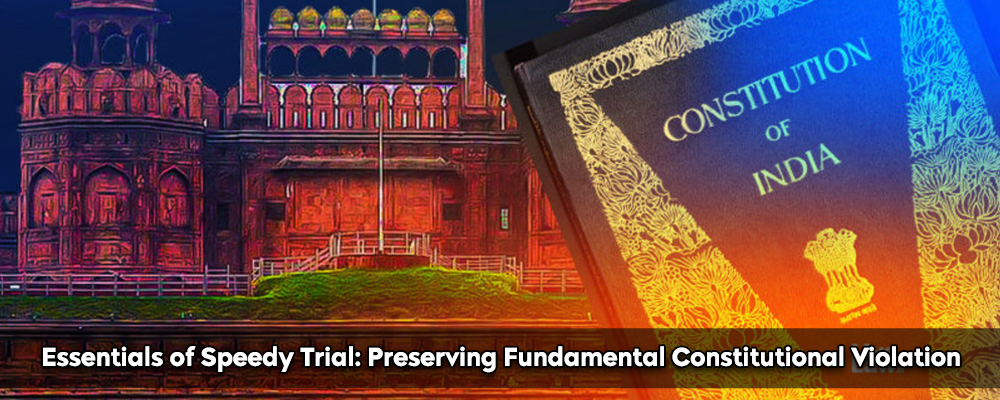In an important ruling, the Bombay High Court (HC) reaffirmed the significance of Article 21 of the Indian Constitution, which defends the right to life and personal liberty. The court found that anytime someone’s freedom of choice is limited without a quick trial, this important constitutional provision is violated. The Bombay High Court’s decision, which emphasizes the need for speedy trials and the protection of individual rights, will have a significant impact on the criminal justice system in India.
Article 21: Constitution of India
A basic right’s foundation is laid out in Article 21 of the Constitution of India. This clause protects a person’s life as well as their freedom by forbidding them from being held against the law.
Need A Legal Advice
The internet is not a lawyer and neither are you. Talk to a real lawyer about your legal issue

Significance of Speedy Trials
A trial must be over in a reasonable amount of time in order to respect the ideas of justice and fairness. Delays in trials can have detrimental effects on both the prosecution and the accused. It might cause witnesses to disappear, evidence to deteriorate, and people hoping for justice to endure longer anguish. The latest decision by the Bombay High Court emphasizes the necessity for quick trials to safeguard people’s constitutional rights.
Bombay High Court Ruling
- The Bombay High Court’s decision in Akash Satish Chandalia v. State of Maharashtra came in response to a petition filed by a person who had been held without charge for a significant amount of time. According to the petitioner, their fundamental rights under Article 21 were violated by their continued incarceration without charge or trial.
- The High Court declared that personal liberty is precious and cannot be limited without a just process. The court determined that a substantial violation of someone’s rights occurs when a trial is not held on time. It emphasized that the state must ensure that criminal processes run swiftly and without needless pauses.
Consequences of the Bombay High Court Ruling
- The ruling upholds the idea that people cannot be imprisoned without charge or trial for lengthy periods of time. The rights of persons who are accused of crimes must be protected in this vital step.
- In order to protect the rule of law, a trial must be held on time. Delays in justice have the potential to damage public confidence in the judicial system. The judgment of the Bombay High Court emphasizes the need to follow the law.
- Prison overcrowding is a result of prolonged detention. The court inadvertently addresses the problem of overcrowding in prisons by highlighting the necessity of quick trials.
- Long-term incarceration can be harmful psychologically and emotionally. The decision ensures that people do not languish in prison without a fair and prompt trial, protecting their dignity and mental health.
Obstacles in the Way
- India’s legal system has a huge backlog of cases. To reduce this backlog, significant judicial reforms are required, such as the appointment of extra judges and the implementation of technology to expedite processes.
- The resources, facilities, and technology needed to conduct trials quickly are usually lacking in courts. It is necessary to have enough funding and resources to ensure on-time trials.
- It might be challenging to ensure long-term witness accessibility and evidence preservation. Making particular safeguards to protect both might be necessary.
Conclusion
The decision of the High Court of Bombay regarding the violation of Article 21 brought on by depriving individuals of their liberty without a timely trial is an important step in defending the legal system of India and constitutional liberties for all citizens. It demonstrates that the right to a speedy trial is more than just a formality; it is a necessary element of the right to life and personal freedom.
The criminal justice system’s various stakeholders will need to work together to put the rules established by this decision into practice. It is essential to deal with the case backlog, give the judiciary the resources, and assure witness and evidence security if India is to fulfil the goal of quick trials.
One can talk to a lawyer from Lead India for any kind of legal support. In India, free legal advice online can be obtained at Lead India. Along with receiving free legal advice online, one can also ask questions to the experts online free through Lead India.





 Talk to a Lawyer
Talk to a Lawyer